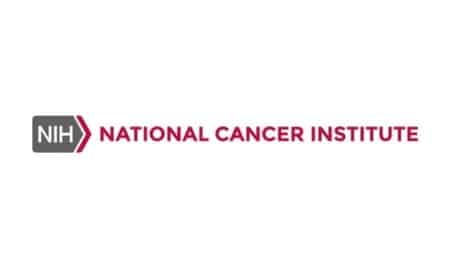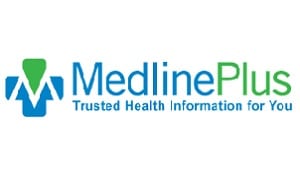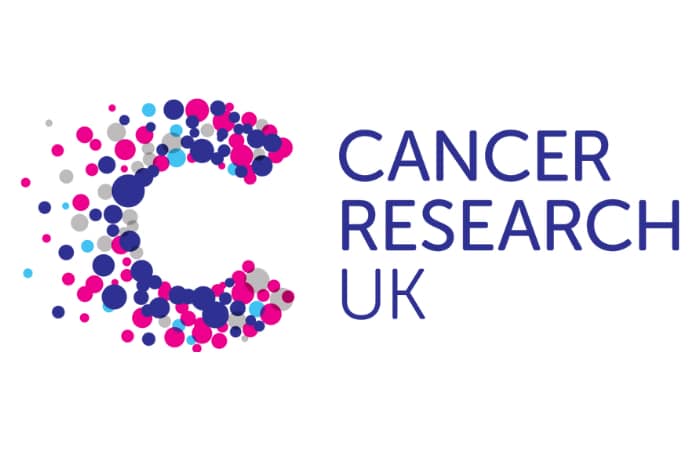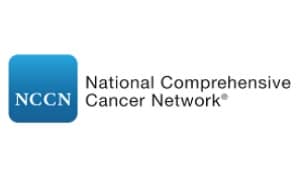Hot flashes at a glance
Hot flashes, also called hot flushes, vasomotor symptoms, or night sweats, are a sensation of your body suddenly feeling hot. Sometimes your skin gets red (flushing) and you may sweat. This can affect your quality of life, work, and sleep.
Cancer treatment and some medical conditions can make hot flashes worse. Hot flashes from hormone therapy for cancer can be so bothersome that some people stop treatment, which can lead to poorer cancer outcomes.
The usual—and often most effective—conventional treatment for bothersome hot flashes is to replace estrogen, also called menopausal hormone therapy (MHT). This may not be a safe option for people with hormone-related cancers, but fortunately other options are available. We encourage you to seek help for your hot flashes before they become so bothersome you want to stop treatment. Including complementary therapies and lifestyle practices that are known to help hot flashes may improve your well-being and improve your resilience to complete your cancer treatment.
On this page
Hot flashes: an overview
What are hot flashes?
Hot flashes are a sensation of the body suddenly feeling hot. They typically begin with an uneasy feeling, then feeling intensely hot in the face and/or upper body, then feeling hot all over. Before or during a hot flash, you may feel nausea, anxiety, rapid heartbeat, dizziness, and/or headache. You may experience flushing and sweating. They can be a distressing symptom and affect your quality of life, particularly when they interrupt sleep frequently.
Hot flashes are also called hot flushes. They may be called night sweats if they happen at night. Hot flashes and night sweats are also known as vasomotor symptoms.
Hot flashes and cancer
Connections to outcomes among people with cancer
Side effects of adjuvant hormone therapy such as leuprolide and goserelin, tamoxifen, ovarian suppression analogues, or aromatase inhibitors can become so severe that some people stop treatment, leading to worse cancer outcomes, including poorer survival. Hot flashes are one of the side effects of these treatments.1Zeng E, He W, Smedby KE, Czene K. Adjuvant hormone therapy-related hot flashes predict treatment discontinuation and worse breast cancer prognosis. Journal of the National Comprehensive Cancer Network. 2022 Apr 6;20(6):683-689.e2.
Hot flashes can interfere with the quality of sleep. Reducing the frequency or intensity of hot flashes has led to better sleep outcomes.2Garland SN, Xie SX et al. Comparative effectiveness of electro-acupuncture versus gabapentin for sleep disturbances in breast cancer survivors with hot flashes: a randomized trial. Menopause. 2017 May;24(5):517-523.
What can cause or trigger hot flashes?
Hot flashes are usually caused by hormonal changes. They are common among people with cancer and may be side effects of cancer or treatment including surgery removing gonads, radiation therapy causing ovarian or testicular failure, and medications that suppress ovarian or testicular function.3National Cancer Institute. Hot Flashes and Night Sweats (PDQ®)–Patient Version. July 29, 2021. Viewed October 15, 2024. They are more common in women but also occur in men with locally advanced or metastatic prostate cancer after medical or surgical removal of one or both testicles (orchiectomy).4Charig CR, Rundle JS. Flushing. Long-term side effect of orchiectomy in treatment of prostatic carcinoma. Urology. 1989 Mar;33(3):175-8.
Medical conditions
- Natural menopause
- Overweight or obesity, including weight gain after a cancer diagnosis5Su HI, Sammel MD et al. Weight gain is associated with increased risk of hot flashes in breast cancer survivors on aromatase inhibitors. Breast Cancer Research and Treatment. 2010 Nov;124(1):205-11.
Cancer treatments
- Tamoxifen
- Aromatase inhibitors
- Androgen deprivation therapy (ADT)
- Gonadotropin-releasing hormones that stop ovaries from producing sex hormones (chemical menopause)
Other medical treatments
- Surgical menopause from removal of ovaries
- Surgical removal of one or both testicles (orchiectomy)
- Opioids
- Tricyclic antidepressants
- Steroids
Lifestyle contributors to hot flashes
Evidence links each of these behaviors to increased risk of hot flashes in general, but not specific to people with cancer.6Jenabi E, Poorolajal J. The association between hot flushes and smoking in midlife women: a meta-analysis. Climacteric. 2015;18(6):797-801; Noll PRES, Noll M et al. Life habits of postmenopausal women: association of menopause symptom intensity and food consumption by degree of food processing. Maturitas. 2022 Feb;156:1-11; Gold EB, Flatt SW et al. Dietary factors and vasomotor symptoms in breast cancer survivors: the WHEL Study. Menopause. 2006 May-Jun;13(3):423-33; Stefanopoulou E, Shah D et al. An International Menopause Society study of climate, altitude, temperature (IMS-CAT) and vasomotor symptoms in urban Indian regions. Climacteric. 2014 Aug;17(4):417-24.
- Smoking cigarettes
- Eating spicy food
- Regularly eating ultra-processed food
- Low intake of vegetables or fiber
Top evidence-based practices and therapies for managing hot flashes
Conventional therapies
Menopausal hormone therapy (MHT), specifically estrogen replacement, effectively controls hot flashes associated with biological or treatment-associated postmenopausal states in women.7Freedman RR, Blacker CM. Estrogen raises the sweating threshold in postmenopausal women with hot flashes. Fertility and Sterility. 2002 Mar;77(3):487-90. However, some hormones, such as estrogen, can make some cancers grow or increase your risk of other cancers, especially breast cancer,8Martin KA, Barbieri RL. Treatment of menopausal symptoms with hormone therapy. UpToDate. November 20, 2023. Viewed October 15, 2024; National Cancer Institute. Hot Flashes and Night Sweats (PDQ®)–Health Professional Version. October 19, 2022. Viewed October 15, 2024; Baber RJ, Panay N, Fenton A; IMS Writing Group. 2016 IMS recommendations on women’s midlife health and menopause hormone therapy. Climacteric. 2016 Apr;19(2):109-50; (Holmberg L, Anderson H; HABITS steering and data monitoring committees. HABITS (hormonal replacement therapy after breast cancer—is it safe?), a randomised comparison: trial stopped. Lancet. 2004 Feb 7;363(9407):453-5; Holmberg L, Iversen OE et al; HABITS Study Group. Increased risk of recurrence after hormone replacement therapy in breast cancer survivors. Journal of the National Cancer Institute. 2008 Apr 2;100(7):475-82; von Schoultz E, Rutqvist LE; Stockholm Breast Cancer Study Group. Menopausal hormone therapy after breast cancer: the Stockholm randomized trial. Journal of the National Cancer Institute. 2005 Apr 6;97(7):533-5. high-risk endometrial cancer, or some types of ovarian cancers. For people with or at high risk of these cancer types, estrogen therapy may be unacceptable (contraindicated). For people with a uterus, progestin therapy is needed to protect the endometrium when estrogen MHT is used. Discuss all the risks and benefits of hormone therapy with your doctor.
The prescription drug gabapentin used “off label” also shows benefits in managing hot flashes among postmenopausal women who are not recommended for hormonal therapy for medical reasons or who prefer alternatives. Use of gabapentin has its own risk of side effects, especially dizziness and unsteadiness.9Yoon SH, Lee JY, Lee C, Lee H, Kim SN. Gabapentin for the treatment of hot flushes in menopause: a meta-analysis. Menopause. 2020 Apr;27(4):485-493. Because any off-label therapies come with side effects, discuss both risks and benefits with your physician.
Medroxyprogesterone acetate (Provera), 5 mg twice daily, appeared to be an effective agent for controlling hot flashes among men after surgical removal of one or both testicles (orchiectomy) in a review.10Charig CR, Rundle JS. Flushing. Long-term side effect of orchiectomy in treatment of prostatic carcinoma. Urology. 1989 Mar;33(3):175-8. Hot flashes in men with prostate cancer may also be treated with estrogens, progestin, antidepressants, and anticonvulsants. As with any medications, discuss both risks and benefits with your physician.
Psychosocial counseling (cognitive behavioral therapy) is also used to manage hot flashes and is recommended in clinical practice guidelines.11“The 2023 Nonhormone Therapy Position Statement of The North American Menopause Society” Advisory Panel. The 2023 nonhormone therapy position statement of The North American Menopause Society. Menopause. 2023 Jun 1;30(6):573-590; Carter J, Lacchetti C et al. Interventions to address sexual problems in people with cancer: American Society of Clinical Oncology clinical practice guideline adaptation of Cancer Care Ontario guideline. Journal of Clinical Oncology. 2018 Feb 10;36(5):492-511; Management of menopausal symptoms in women with a history of breast cancer. Cancer Australia. December 2016. Viewed October 15, 2024.
Helpful links on conventional treatments for hot flashes
Lifestyle practices
These practices have modest, good, or strong evidence of benefit for managing hot flashes, although not always among people with cancer.
- Eating Well: Women with early-stage breast cancer eating a high-vegetable, high-fiber, reduced-fat diet reported less severe hot flashes in one large study, and the researchers determined that fiber was the largest contributor to this effect.12Gold EB, Flatt SW et al. Dietary factors and vasomotor symptoms in breast cancer survivors: the WHEL Study. Menopause. 2006 May-Jun;13(3):423-33. Other studies regarding menopausal hot flashes not specific to cancer found that eating more vegetables and fiber and fewer ultra-processed foods13Noll PRES, Noll M et al. Life habits of postmenopausal women: association of menopause symptom intensity and food consumption by degree of food processing. Maturitas. 2022 Feb;156:1-11; Gold EB, Flatt SW et al. Dietary factors and vasomotor symptoms in breast cancer survivors: the WHEL Study. Menopause. 2006 May-Jun;13(3):423-33; Stefanopoulou E, Shah D et al. An International Menopause Society study of climate, altitude, temperature (IMS-CAT) and vasomotor symptoms in urban Indian regions. Climacteric. 2014 Aug;17(4):417-24. or a low-fat, vegan diet and ½ cup cooked soybeans every day,14Barnard ND, Kahleova H et al. A dietary intervention for vasomotor symptoms of menopause: a randomized, controlled trial. Menopause. 2023 Jan 1;30(1):80-87. or even simply eating a diet rich in soy foods15Zhang L, Ruan X, Cui Y, Gu M, Mueck AO. Menopausal symptoms and associated social and environmental factors in midlife Chinese women. Clinical Interventions in Aging. 2020 Nov 16;15:2195-2208. led to fewer or less severe hot flashes. However, drinking a soy beverage did not have a significant effect on hot flashes among women with breast cancer in one study.16Van Patten CL, Olivotto IA et al. Effect of soy phytoestrogens on hot flashes in postmenopausal women with breast cancer: a randomized, controlled clinical trial. Journal of Clinical Oncology. 2002 Mar 15;20(6):1449-55. See How to Eat Well › Safety note: Among people with HER2 positive breast cancer, eating more soy foods has been associated with a greater risk of recurrence.17Woo HD, Park KS, Ro J, Kim J. Differential influence of dietary soy intake on the risk of breast cancer recurrence related to HER2 status. Nutrition and Cancer. 2012;64(2):198-205.
These practices have shown benefit among women with menopausal hot flashes, but no research or not enough research has investigated effects among people with cancer.
- Moving More: Postmenopausal women participating in resistance training reported fewer hot flashes across many studies,18Choudhry DN, Saleem S, Hatim S, Irfan R. The effect of resistance training in reducing hot flushes in post-menopausal women: a meta-analysis. Journal of Bodywork and Movement Therapies. 2024 Jul;39:335-342; Sá KMM, da Silva GR et al. Resistance training for postmenopausal women: systematic review and meta-analysis. Menopause. 2023 Jan 1;30(1):108-116. although exercise as a whole has not shown benefit19Nguyen TM, Do TTT, Tran TN, Kim JH. Exercise and quality of life in women with menopausal symptoms: a systematic review and meta-analysis of randomized controlled trials. International Journal of Environmental Research and Public Health. 2020 Sep 26;17(19):7049; Daley A, Stokes-Lampard H, Thomas A, MacArthur C. Exercise for vasomotor menopausal symptoms. Cochrane Database of Systematic Reviews. 2014 Nov 28;2014(11):CD006108. unless at high intensity or for more than 30 minutes a day.20Zhang L, Ruan X, Cui Y, Gu M, Mueck AO. Menopausal symptoms and associated social and environmental factors in midlife Chinese women. Clinical Interventions in Aging. 2020 Nov 16;15:2195-2208. See How to Move More ›
- Manage your body weight: Overweight or obese women have reported fewer hot flashes after reducing their body weight in a couple of studies.21Hepp N, Pole L. Why is managing body weight important? CancerChoices. May 21, 2024. See What practices and therapies can help you manage your body weight? ›
Complementary therapies
These therapies have modest, good, or strong evidence of benefit for managing hot flashes among people with cancer.
- Acupuncture is a practice of inserting fine needles into the body at specific points. People with cancer treated with acupuncture have shown fewer hot flashes in many, but not all, studies.22Hepp N. How can acupuncture help you? What the research says. CancerChoices. August 28, 2024 . Clinical practice guidelines recommend acupuncture for managing hot flashes among people with cancer, sometimes with a weak recommendation.23Greenlee H, DuPont-Reyes MJ et al. Clinical practice guidelines on the evidence-based use of integrative therapies during and after breast cancer treatment. CA Cancer Journal for Clinicians. 2017 May 6;67(3):194-232 (this set of guidelines has been endorsed by the American Society of Clinical Oncology (ASCO): Lyman GH, Greenlee H et al. Integrative therapies during and after breast cancer treatment: ASCO endorsement of the SIO clinical practice guideline. Journal of Clinical Oncology. 2018 Sep 1;36(25):2647-2655); Management of menopausal symptoms in women with a history of breast cancer. Cancer Australia. December 2016. Viewed October 15, 2024; Deng GE, Frenkel M et al; Society for Integrative Oncology. Evidence-based clinical practice guidelines for integrative oncology: complementary therapies and botanicals. Journal of the Society for Integrative Oncology. 2009 Summer;7(3):85-120. See Acupuncture: affordability and access ›
- Electroacupuncture involves inserting very thin needles at specific points on the body and passing a mild electric current between them. People with cancer treated with electroacupuncture have reported fewer or less severe hot flashes in several studies.24Hepp N, Pole L. How can electroacupuncture help you? What the research says. CancerChoices. August 28, 2024. One clinical practice guideline gives a weak recommendation for electroacupuncture for managing hot flashes among women with a history of breast cancer.25Management of menopausal symptoms in women with a history of breast cancer. Cancer Australia. December 2016. Viewed October 15, 2024. See Electroacupuncture: affordability and access ›
- Hypnotherapy is a technique to induce a state of greater awareness, focused attention, and deep relaxation to manage symptoms or help a person gain control over behaviors they’d like to change. People with breast cancer undergoing hypnotherapy reported lower scores for hot flashes (frequency X severity) but not hot flash-related daily interference across 2 studies.26Tao WW, Tao XM, Song CL. Effects of non-pharmacological supportive care for hot flushes in breast cancer: a meta-analysis. Supportive Care in Cancer. 2017 Jul;25(7):2335-2347. Hypnotherapy is recommended in clinical practice guidelines, including guidelines for people with cancer, for managing hot flashes.27“The 2023 Nonhormone Therapy Position Statement of The North American Menopause Society” Advisory Panel. The 2023 nonhormone therapy position statement of The North American Menopause Society. Menopause. 2023 Jun 1;30(6):573-590; Carter J, Lacchetti C et al. Interventions to address sexual problems in people with cancer: American Society of Clinical Oncology clinical practice guideline adaptation of Cancer Care Ontario guideline. Journal of Clinical Oncology. 2018 Feb 10;36(5):492-511; Management of menopausal symptoms in women with a history of breast cancer. Cancer Australia. December 2016. Viewed October 15, 2024. See Find a hypnotherapist › from Psychology Today.
- Mindfulness-based practices are mental training techniques that involve being aware of your thoughts, feelings, and surroundings in the present moment without judgment. Women diagnosed with breast cancer before age 50 reported fewer hot flashes and night sweats (vasomotor symptoms) after completing cancer treatment when treated with mindful awareness practices such as mindful meditation (not the same as mindfulness-based stress reduction) in a couple of studies.28Bower JE, Partridge AH et al. Targeting depressive symptoms in younger breast cancer survivors: the pathways to wellness randomized controlled trial of mindfulness meditation and survivorship education. Journal of Clinical Oncology. 2021 Nov 1;39(31):3473-3484; Bower JE, Crosswell AD et al. Mindfulness meditation for younger breast cancer survivors: a randomized controlled trial. Cancer. 2015 Apr 15;121(8):1231-40. Erratum in: Cancer. 2015 Jun 1;121(11):1910. See How to Practice Mindfulness › from Mindful.
- Relaxation techniques refocus your attention on something calming and increase awareness of your body. People with primary breast cancer treated with relaxation techniques have reported fewer and less severe hot flashes in a couple of studies.29Hepp N. How can relaxation techniques help you? What the research says. CancerChoices. May 29, 2024. See Relaxation Techniques: affordability and access ›
These therapies have shown benefit among women with menopausal hot flashes, but no research or not enough research has investigated effects among people with cancer.
- Maca (Lepidium peruvianum) is an herb available as a supplement. Women treated with maca reported fewer and less severe menopause-related hot flashes and night sweats in several studies.30Meissner HO, Mscisz A et al. Hormone-balancing effect of pre-gelatinized organic maca (Lepidium peruvianum Chacon): (II) physiological and symptomatic responses of early-postmenopausal women to standardized doses of maca in double blind, randomized, placebo-controlled, multi-centre clinical study. International Journal of Biomedical Sciences. 2006 Dec;2(4):360-74; Meissner HO, Mscisz A et al. Hormone-balancing effect of pre-gelatinized organic maca (Lepidium peruvianum Chacon): (III) clinical responses of early-postmenopausal women to Maca in double blind, randomized, placebo-controlled, crossover configuration, outpatient study. International Journal of Biomedical Sciences. 2006 Dec;2(4):375-94; Meissner HO, Kapczynski W, Mscisz A, Lutomski J. Use of gelatinized maca (Lepidium peruvianum) in early postmenopausal women. International Journal of Biomedical Sciences. 2005 Jun;1(1):33-45. Maca is available from online and retail supplement suppliers. See Sourcing Quality Herbs and Supplements ›
- Soy supplements have led to fewer and/or less severe hot flashes among peri- or postmenopausal women in many studies.31Oh MR, Park JH, Park SK, Park SH. Efficacy of plant-derived dietary supplements in improving overall menopausal symptoms in women: an updated systematic review and meta-analysis. Phytotherapy Research. 2024 Mar;38(3):1294-1309; Daily JW, Ko BS et al. Equol decreases hot flashes in postmenopausal women: a systematic review and meta-analysis of randomized clinical trials. Journal of Medicinal Food. 2019 Feb;22(2):127-139; Li L, Xu L et al. Comparative efficacy of nonhormonal drugs on menopausal hot flashes. European Journal of Clinical Pharmacology. 2016 Sep;72(9):1051-8; Li L, Lv Y, Xu L, Zheng Q. Quantitative efficacy of soy isoflavones on menopausal hot flashes. British Journal of Clinical Pharmacology. 2015 Apr;79(4):593-604. However, studies involving either women or men with cancer-related hot flashes have not found evidence of benefits from soy supplements regarding hot flashes.32Dooley WC, Hendricks C, Gusev Y, Shockney L. Internet based double-blind cross-over clinical trial to test efficacy of high dose isoflavone soy in controlling breast cancer survivor hot flashes. Journal of Clinical Oncology. 2006. 24:18_suppl; MacGregor CA, Canney PA, Patterson G, McDonald R, Paul J. A randomised double-blind controlled trial of oral soy supplements versus placebo for treatment of menopausal symptoms in patients with early breast cancer. European Journal of Cancer. 2005 Mar;41(5):708-14; Nikander E, Kilkkinen A et al. A randomized placebo-controlled crossover trial with phytoestrogens in treatment of menopause in breast cancer patients. Obstetrics and Gynecology. 2003 Jun;101(6):1213-20; Quella SK, Loprinzi CL et al. Evaluation of soy phytoestrogens for the treatment of hot flashes in breast cancer survivors: a North Central Cancer Treatment Group Trial. Journal of Clinical Oncology. 2000 Mar;18(5):1068-74; Vitolins MZ, Griffin L et al. Randomized trial to assess the impact of venlafaxine and soy protein on hot flashes and quality of life in men with prostate cancer. Journal of Clinical Oncology. 2013 Nov 10;31(32):4092-8; Sharma P, Wisniewski A et al. Lack of an effect of high dose isoflavones in men with prostate cancer undergoing androgen deprivation therapy. Journal of Urology. 2009 Nov;182(5):2265-72. Most of the studies treated people with cancer with soy supplements for no more than 12 weeks, and studies among people with menopausal hot flashes (not specific to cancer) have found that treatment of more than 12 weeks is needed to see results.33Li L, Xu L et al. Comparative efficacy of nonhormonal drugs on menopausal hot flashes. European Journal of Clinical Pharmacology. 2016 Sep;72(9):1051-8; Li L, Lv Y, Xu L, Zheng Q. Quantitative efficacy of soy isoflavones on menopausal hot flashes. British Journal of Clinical Pharmacology. 2015 Apr;79(4):593-604. Because of this, we consider the lack of evidence among people with cancer inconclusive. Soy supplements are available from drug stores and online retailers. Safety note: Soy can be problematic for people with thyroid disease such as Hashimoto’s thyroiditis and can interfere with thyroid medications.
- Yoga is a mind-body practice that includes breath control, meditation, and physical postures. Perimenopausal or postmenopausal women practicing yoga had substantially fewer or less severe hot flashes in many studies, and a few studies show benefits among people with cancer.34Hepp N, Pole N. How can yoga help you? What the research says. CancerChoices. October 22, 2024. One clinical practice guideline gives a weak recommendation for yoga for managing hot flashes among women with a history of breast cancer.35Management of menopausal symptoms in women with a history of breast cancer. Cancer Australia. December 2016. Viewed October 15, 2024. See Yoga: affordability and access ›
Recommendation against use; should be avoided
These other complementary therapies are not recommended or have a recommendation against use for managing hot flashes in at least one clinical practice guideline due to a lack of effect in studies:36Greenlee H, DuPont-Reyes MJ et al. Clinical practice guidelines on the evidence-based use of integrative therapies during and after breast cancer treatment. CA Cancer Journal for Clinicians. 2017 May 6;67(3):194-232 (this set of guidelines has been endorsed by the American Society of Clinical Oncology (ASCO): Lyman GH, Greenlee H et al. Integrative therapies during and after breast cancer treatment: ASCO endorsement of the SIO clinical practice guideline. Journal of Clinical Oncology. 2018 Sep 1;36(25):2647-2655); Management of menopausal symptoms in women with a history of breast cancer. Cancer Australia. December 2016. Viewed October 15, 2024; “The 2023 Nonhormone Therapy Position Statement of The North American Menopause Society” Advisory Panel. The 2023 nonhormone therapy position statement of The North American Menopause Society. Menopause. 2023 Jun 1;30(6):573-590.
- Angelica sinensis (dong quai)
- Cannabinoids or cannabis
- Ginseng
- Omega-3 fatty acids
- Paced respiration
- Wild yam (Dioscorea barbasco, D. mexicana, or D. villosa)
Helpful Links
Loprinzi CL, Barton DL et al. Mayo Clinic and North Central Cancer Treatment Group hot flash studies: a 20-year experience. Menopause. 2008 Jul-Aug;15(4 Pt 1):655-60.
Frisk J. Managing hot flushes in men after prostate cancer—a systematic review. Maturitas. 2010 Jan;65(1):15-22.
For professionals
Practice guidelines for professionals
Recommendations for vasomotor symptoms begin on page 118 (registration with a free account is required.)
Helpful links for professionals
Eden J. Managing menopausal symptoms after breast cancer. European Journal of Endocrinology. 2016 Mar;174(3):R71-7.
Nonhormonal management of menopause-associated vasomotor symptoms: 2015 position statement of The North American Menopause Society. Menopause. 2015 Nov;22(11):1155-72; quiz 1173-4.
References








